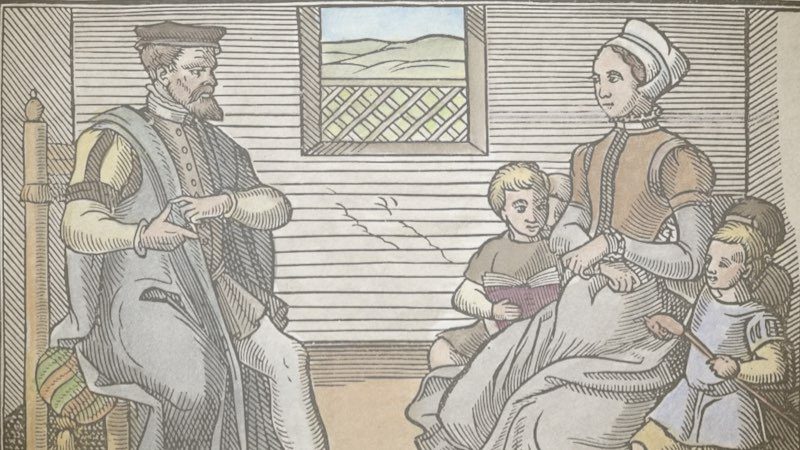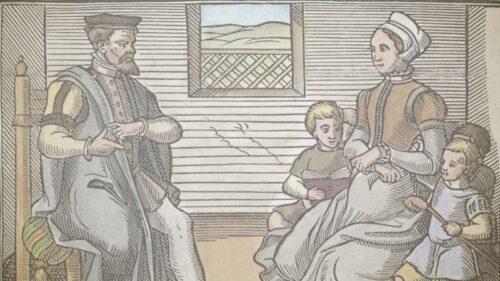
Chapter 11
Remove to Taunton — Keep a shop — Manufactory — Very prosperous — Summoned before the Mayor — Defence — Recorder’s speech — Discharge
I removed to Taunton for the purpose of teaching the French language, finding that I could obtain some pupils there. Our plan was to keep a shop also, and we were in great hopes that with both together we should be able to pay our way.
I borrowed £100 from a friend. I found the wholesale dealers in Bristol and Exeter very accommodating in the credits they granted me. As fast as I sold the goods I paid for them, and I was then allowed to take a fresh supply on credit; and in this way we gradually increased in our dealings until we had a stock of one thing or other to the amount of £400.
About this time two Frenchmen called upon me whom I had known in great distress in Bridgewater, and I had there solicited charity for them, at the same time advising them to learn a trade so as to make themselves independent for the future; and I had suggested their binding themselves to some of the French manufacturers of light stuffs in Bristol, and assured them they would have to ask charity no more.
They had taken my advice, and at the end of two years they visited me expressly to return their thanks. I did not recognise them; the rags and tatters in which they had formerly appeared had given place to decent and respectable clothing. They told me they were the persons whom I had recommended to learn a trade, that they had done so, and now all they wanted was a small advance from somebody, and they would work for half the profits. They urged me to undertake it, and they said £20 would suffice to buy worsted, yarn and dyes, and that they themselves had wherewithal to buy tools, and that if I would make the advance for them, they would work two years for me, and be contented with half the profit on the work. I consented to it, and as I did not wish to cramp the business of the shop, I borrowed the £20 from a widow lady at Bridgewater.
Behold me now not only a teacher of languages, and a shopkeeper, but a manufacturer also.
One of these Frenchmen had formerly been a pickpocket in London; and had quitted the employment solely from apprehension of punishment; he was a very skilful workman, he would accomplish more in a given time than two others and it would also be better finished. He was the chief manager, and used to go to Exeter to purchase the worsteds, and he made excellent bargains. I trusted him frequently with £20 and £25 at a time for this purpose, and he was uniformly correct in all his dealings with me. He once told one of his fellow workmen, that he had been often strongly tempted to run away with the money, and then he would say to himself. “What! steal from a man who has been so invariably kind to me, and who places so much confidence in me! No, I cannot do it.” When he left me, I understood he returned to London, and fell into bad habits again.
At the end of three months, I knew much more than the workmen did. I invented new patterns, and taught them how to execute them. When the first year was ended, we had gained something; but instead of £20, I had fully £80, employed in the manufactory. In dividing the profits, the workmen quarrelled so much amongst themselves, that they proposed of their own accord, that I should pay them regular wages, and carry on the business altogether on my own account.
Every thing now seemed to prosper with me. I hired the handsomest shop in Taunton, opposite the cross in the Market place, and I was able to furnish it with so great a variety, that it was always filled with customers; and my wife and two boys to assist her, found ample employment. I manufactured stuffs in the upper part of the house which were sold below at a profit. I went once a quarter to Bristol and Exeter to purchase groceries, and pay off the old debt. I determined to sell Malaga and Alicant raisins at the same price retail that I bought them wholesale, and I did the same with needles. Every body knew the value of these articles, and the sale of them did not altogether amount to any great sum. One said to another, you will find beautiful raisins at the Frenchman’s for such a price; so they came to see if it was true, and probably bought ten or twelve shillings worth of other articles, as well as the cheap raisins, and thus we found our account in it.
The other shopkeepers said I should be a bankrupt in a very short time, for I sold the raisins at the same price they paid in Bristol, without reckoning the expense of carriage, loss of weight, &c. This sort of talk only increased our business, for the people thought they would buy whatever they wanted before I was ruined. When any of my friends asked me privately why I sold so cheap, I told them that I found it to answer, and repeated the common proverb, “Light gains make a heavy purse.”
I procured from the French manufacturers in Holland, linens, galloons, thread, needles, and tin and copper ware, all which, cost me much less than if I had bought them in England. Beaver hats were made by only two persons in Exeter, they were both French Refugees, and supplied no one but myself in our town, and again, I had the best of French brandy, pure and unadultrated, whereas the English generally played tricks with theirs. In short, stranger as I was, I had more custom than any other shop in the town.
For some time my competitors had patience, in the hope each day that the next would see me put the key under the door; instead of that, I was more and more prosperous.
I had just begun to breathe freely, and feel comfortable, when they commenced a prosecution, and summoned me to appear before the Mayor and Court of Aldermen.
James Fontaine (1658) was the great-great-great-great-great-great-grandfather of Jared Smith (Editor of the AHB). He wrote an autobiography, the material of which was compiled and published by some of his descendants. The first publication is called, ”A Tale Of The Huguenots Or Memoirs Of A French Refugee Family (De La Fontaine)” (1838). The second publication is called, “Memoirs Of A Huguenot Family” (1872).
"A Tale Of The Huguenots Or Memoirs Of A French Refugee Family (De La Fontaine)", 1838 (Complete)
Memoirs Of A Huguenot Family, 1872 (Complete)




